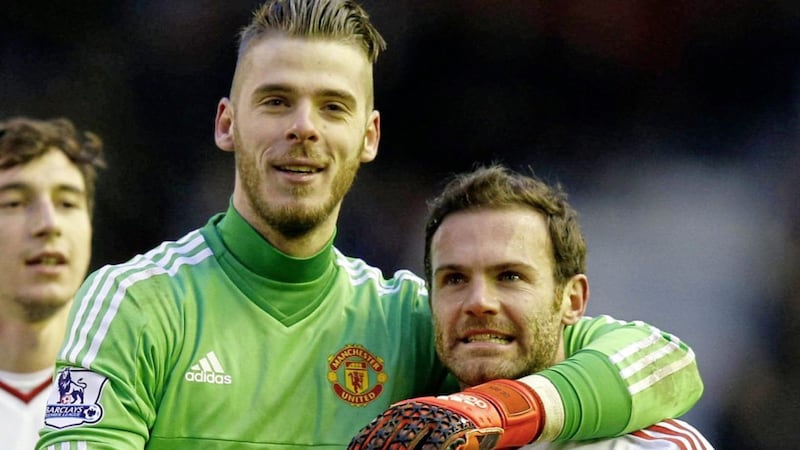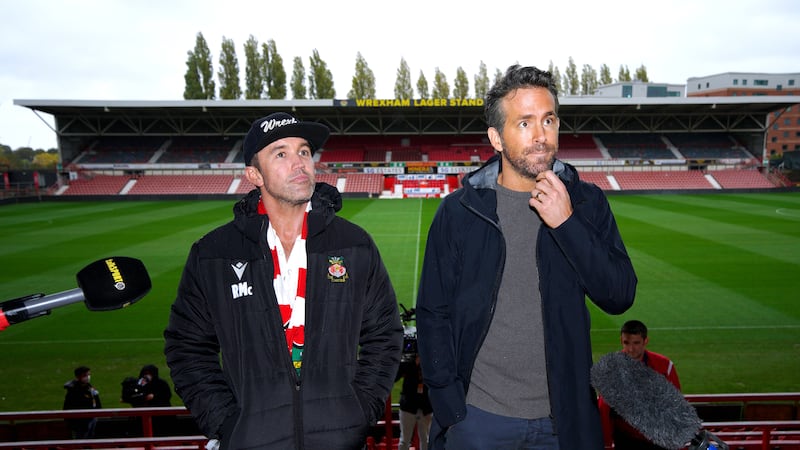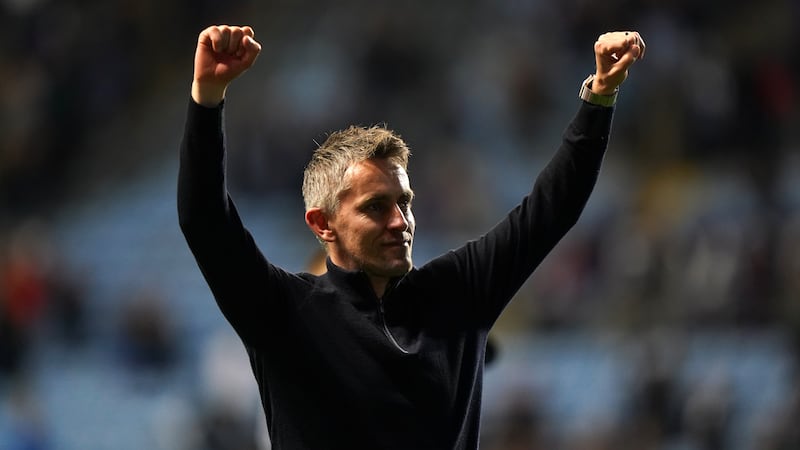JUAN Mata’s equalising goal against Juventus on Wednesday night was a thing of beauty. Just like most of the Spaniard’s goals.
He rarely goes for power; precision is his trade.
Mata has made a habit of pulling Manchester United out of fires.
On numerous occasions, the little midfielder has delivered the goods for the great under-performers of English football.
Since joining Chelsea from Valencia in 2011, Mata has become one of the most popular foreign players to grace the English Premiership.
A millionaire footballer with a strong social conscience, he set up a global charity last year called Common Goal that aims to tackle poverty, HIV/Aids, gender inequality and youth unemployment in deprived countries around the world under the umbrella of football.
Mata’s idea is simple: Common Goal’s members pledge one per cent of their earnings which is then allocated to “high-impact organisations” to advance the United Nations global goals of reducing poverty, hunger and to have clean water and sanitation.
Among the high-profile members of the charity are Juventus star Giorgio Chiellini, German international Mats Hummels, Shinji Kagawa of Borussia Dortmond and Leicester City goalkeeper Kasper Schmeichel who donate one per cent of their salaries.
Interestingly, none of Mata’s Manchester United team-mates have become members of Common Goal.
Upon the charity’s launch last year, Mata said he wanted it to be “something that would change the world, even if only in a small way.”
At the start of the season, Common Goal announced its first club member, Denmark’s FC Nordsjaelland which donated one per cent of its gate receipts from their Europa League fixture with Cliftonville to the charity.
It's hard to imagine a better example of a famous millionaire footballer using his profile for the common good.
In an industry awash with money and greed being the game's dominant culture, it's refreshing to know there are shining examples of altruism such as Juan Mata.
On the field, he offers regular reminders of his brilliance.
Just when United seemed to be trundling to a 1-0 defeat in Turin, up stepped Mata – a second-half substitute – to curl a free-kick into the Juventus net before a scrappy own goal won it for the faltering English Premiership club.
When Jose Mourinho was unveiled as the club’s new manager, many observers thought Mata would be the first to leave.
When Mourinho returned to Chelsea, Mata had won back-to-back club player of the year awards and was the undisputed hub of the team.
Mourinho had different ideas.
Soon enough, Mata was on his way out of Stamford Bridge bound for Old Trafford.
When he was re-united with Mourinho, Mata said: “It was another challenge but my desire and my professionalism is not questioned. I know he likes that. I also think my football can add good things for our style. So I believe: ‘OK let’s try again. Let’s give the team what he wants me to give.’”
Mourinho views players of Mata’s ilk with deep suspicion.
Not only was Mata a luxury player – but a one-paced luxury player.
Mourinho’s teams have always been built on strong defence and quick counter-attack.
Where would Mata fit in? Could he fit in?
And yet through the various managerial upheavals Juan Mata is still at Old Trafford, but rarely is he played in his most effective position.
In the popular 4-2-3-1 formation, Mata’s best position would be the central man in the attacking line of three.
The benefits to playing him there are two-fold: he’s closer to the opponent’s goal and his lack of pace isn’t exposed as it often is when he’s played in a right-sided role.
Too often he has been deployed in a wide role where he expends most of his energy tracking the full-back, largely because Mourinho is ambivalent towards the merits of possession football.
It’s a baffling tactic to keep Mata out of central attacking areas of the field where he can play more final passes and get into more scoring positions – which he’s always been adept at doing, dating back to his Valencia days.
Mata has probably been an under-appreciated footballer for most of his career.
At international level he played in the shadow of Xavi, Andres Iniesta and Sergio Busquets.
He fitted the tiki-taka tradition but probably realised he was never going to displace the aforementioned trio and therefore carved a reputation for scoring goals from deep positions.
He also joined Manchester United at a time of great flux and has never been properly utilised.
In by-gone eras, managers would have built their teams around Mata. He’d be the trusted metronome, the player who would dictate the tempo – inject pace into a game or calm it down.
At United, Louis van Gaal or Mourinho have never been prepared to take that definitive leap of faith with Mata.
He has often been viewed through a negative prism where too much is made of what he can’t do rather than what he can do for the team.
Mata was never meant to work in the physical environs of English football.
He was never meant to last this long under the rigid instructions of Mourinho.
“I love the English game,” he said. “When the game gets crazy, it creates more space. It is a very physical league which is big on set pieces – but that sense of ‘Let’s forget about tactics and just attack’ helps me use that space.”
Through all his deftness, spatial awareness and big-game moments, Juan Mata’s greatest strength is his mental toughness. He will keep coming back until he convinces you.
With every goal and clever pass, he beseeches Mourinho to make more room for his creativity.
Perhaps that’s ultimately where the manager is going wrong.
Trust the process. Trust in Mata...









